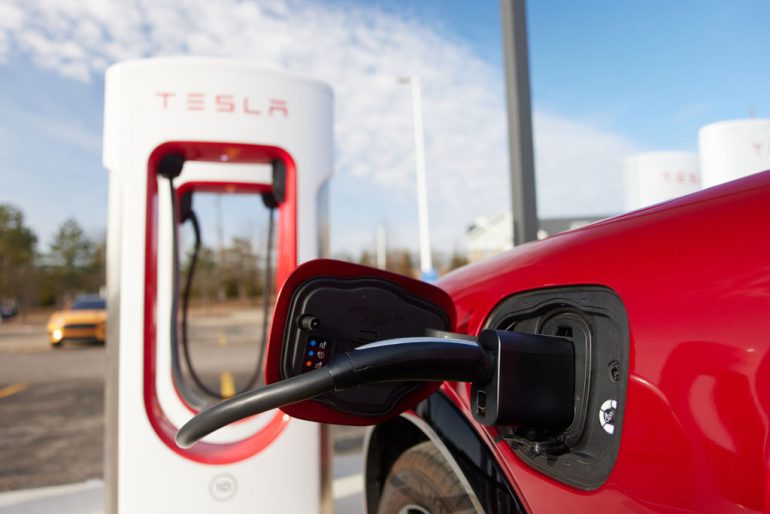
Tesla’s move to open up its Supercharger network to other electric vehicle manufacturers, including Ford and General Motors, signals a strategic shift for the company and has the potential to generate billions in revenue. This partnership allows owners of Ford electric vehicles, such as the Mustang Mach-E and F-150 Lightning, to use Tesla Superchargers in North America through the use of fast-charging adapters.
Ford CEO Jim Farley expressed enthusiasm about the collaboration on LinkedIn, emphasizing that the initiative aims to enhance the electric vehicle (EV) ownership experience for Ford drivers. The partnership is not exclusive to Ford, as Tesla has also entered into a similar agreement with General Motors, providing GM customers access to over 12,000 Tesla fast chargers in the U.S. and Canada. GM CEO Mary Barra highlighted the potential cost savings, estimating up to $400 million in planned investments for EV charging station infrastructure.
This collaboration marks a departure from Tesla CEO Elon Musk’s previous emphasis on the exclusivity of Tesla’s charging network. Musk had long promoted the reliability of Tesla’s charging locations and the company’s ability to prevent long lines for users. However, by opening up its network to other manufacturers, Tesla stands to gain significant financial benefits.
Sam Fiorani, vice president for global forecasting at AutoForecast Solutions, anticipates substantial financial gains for Tesla through environmental credits and charging session fees. Despite concerns that easing access to Tesla charging stations may lead to a loss of customers to other brands, Fiorani argues that Tesla’s brand loyalty will likely keep the majority of owners returning to Tesla for their electric vehicles.
Currently, Tesla operates about one-third of charging stations in the U.S., and even with a potential slowdown in electric vehicle adoption, Fiorani estimates that Tesla could generate between $6 billion to $12 billion annually from its expanded charging business by 2030.
Furthermore, opening up its charging network aligns with President Joe Biden’s Inflation Reduction Act, potentially making Tesla eligible for federal funds. Tesla has a history of leveraging government regulations to generate income, and this move is consistent with the company’s strategy of exploring various revenue streams.
While Tesla has not disclosed whether it will break out revenue specifically from non-Tesla vehicle use of its charging network, William Navarro Jameson, Tesla’s Strategic Charging Programs lead, highlighted the extensive testing, hardware and software integrations, and legal efforts required to establish these partnerships.
On social media, Tesla has actively promoted the expansion of its charging network in North America and encouraged more retailers to host Superchargers at their facilities. This collaborative approach reflects Tesla’s commitment to advancing electric vehicle adoption and capitalizing on the growing demand for EV charging infrastructure.

Lloyd Tobias is a seasoned automotive journalist and passionate enthusiast with over 15 years of experience immersed in the world of cars. Whether it’s exploring the latest advancements in automotive technology or keeping a close pulse on breaking industry news, Lloyd brings a sharp perspective and a deep appreciation for all things automotive. His writing blends technical insight with real-world enthusiasm, making his contributions both informative and engaging for readers who share his love for the drive. When he’s not behind the keyboard or under the hood, Lloyd enjoys test driving the newest models and staying ahead of the curve in an ever-evolving automotive landscape.